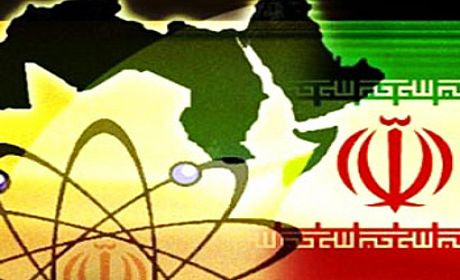Iran Allowed Inspections Far Exceeding Additional Protocol

Mr. Goldschmidt must be aware that Iran did in fact voluntarily implement the Additional Protocol for a period of about 2 years, and allowed inspections that far exceeded what the Additional Protocol would have even required had it been ratified by Iran, and that furthermore that according to the IAEA reports themselves, past safeguards breaches by Iran (such as they were) had no relation to a weapons program and involved no diversion of nuclear material for non-peaceful purposes.
Iran has also repeatedly offered to not only ratify the Additional Protocol (AP) but impose limits on its nuclear program well beyond the AP, as long as its right to enrichment is recognized -- and it is not, so that’s where the problem lies not with Iran. IAEA head Elbaradei himself pointed out that Iran had been making these sorts of compromise offers to the West for years but was ignored because, he concluded: “They weren’t interested in a compromise with the government in Tehran, but regime change – by any means necessary."
Furthermore the issues with past undeclared activities were resolved to Iran’s favor pursuant to the Iran-IAEA Modalities Agreement, a historical event that seems to get ignored quite a bit in the recounting of the dispute over Iran’s nuclear program. The only "outstanding issue" currently with respect to past activities are the "Alleged Studies" -- which Iran agreed it would address upon seeing the documentation, as stated in the Modalities Agreement. Thus far, the IAEA (due to US-imposed restrictions) has failed to provide Iran with the documentation containing the allegations that Iran is supposed to refute, but Iran nevertheless filed a 100+ page analysis with respect to these allegations as it had promised under the Modalities Agreement anyway, but to no avail. And to date, what is publicly known about these documents makes them highly suspect.
Mr. Goldschmidt also incorrectly states the standard which Iran has to meet: Under the terms of Iran’s safeguards agreement, it does not have to verify the "completeness" of the declaration, only its "correctness" since Iran is not yet a party to the AP, according to an actual lawyer specializing in non-proliferation law: http://armscontrollaw.com/2012/09/13/the-iaea-applies-incorrect-standards-exceeding-its-legal-mandate-and-acting-ultra-vires-regarding-iran/
Nothing in the NPT allows outside powers to unilaterally impose arbitrary additional limitations on Iran’s nuclear program. Nevertheless, as I mentioned, Iran did implement the Additional Protocol anyway, and allowed pretty much unrestricted access to sites (such as Parchin) which fall well outside of the IAEA’s legal authority even under the terms of the AP, and which resulted in finding precisely nothing. Years ago, IAEA officials themselves admitted that none of the "secret intelligence tips" about Iran had ever panned out and they were being led on a wild goose chase:
"Since 2002, pretty much all the intelligence that’s come to us has proved to be wrong," said a senior diplomat at the atomic energy agency: http://www.sfgate.com/politics/article/Most-U-S-tips-fingering-Iran-false-envoys-2646358.php#page-1

